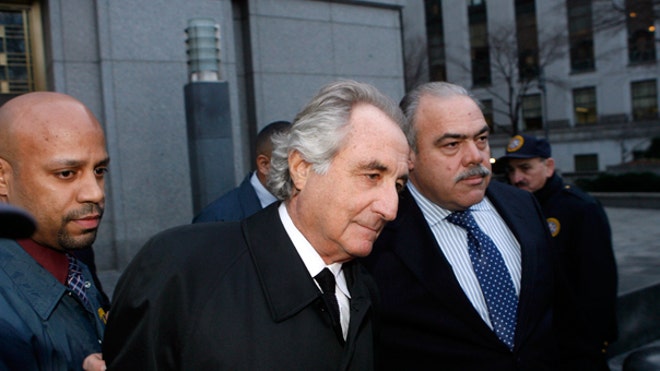 Headquartered in a former Rothschild chateau in an affluent Parisian neighborhood, the Organization for Economic Cooperation and Development is best known for earnest conferences on economic and social policy.
Headquartered in a former Rothschild chateau in an affluent Parisian neighborhood, the Organization for Economic Cooperation and Development is best known for earnest conferences on economic and social policy.
With little outside attention, it also plays a pivotal role enabling global corporations such as Google Inc. (GOOG), Hewlett- Packard Co. and Amazon.com Inc (AMZN). to dodge taxes by shifting profits into offshore subsidiaries, costing the U.S. and Europe more than $100 billion a year.

 Economic Glance
Economic Glance Puerto Rico occupies a space between foreign and domestic status with U.S. citizenship for residents, its own Olympic team and a tax system that allows individuals and companies the chance to elude the IRS.
Puerto Rico occupies a space between foreign and domestic status with U.S. citizenship for residents, its own Olympic team and a tax system that allows individuals and companies the chance to elude the IRS. With news of record corporate profits and increased bonuses for those at the top of the financial heap — and on-going income stagnation, job loss, and rising poverty for those in the middle and bottom of the ladder—it’s maddening for progressives to hear our political elites continuing to promote austerity as a means for growth.
With news of record corporate profits and increased bonuses for those at the top of the financial heap — and on-going income stagnation, job loss, and rising poverty for those in the middle and bottom of the ladder—it’s maddening for progressives to hear our political elites continuing to promote austerity as a means for growth. Madoff, who was sentenced to 150 years in prison in 2009 for his multi-billion dollar scheme, has made this claim before. He told The New York Times in an interview from prison in 2011 that the banks "had to know" he was committing fraud, but chose to turn a blind eye.
Madoff, who was sentenced to 150 years in prison in 2009 for his multi-billion dollar scheme, has made this claim before. He told The New York Times in an interview from prison in 2011 that the banks "had to know" he was committing fraud, but chose to turn a blind eye. Baxter, the affordable, humanoid industrial robot recently unveiled by Rethink Robotics, is so easy to program that I once did it one-handed and drunk. We were at a party at the Massachusetts Institute of Technology (MIT), and he was standing in the corner, looking lonely. No, really—Baxter has expressive eyes projected on a touchscreen where you’d expect it to have a face, virtually guaranteeing that you’ll anthropomorphize it.
Baxter, the affordable, humanoid industrial robot recently unveiled by Rethink Robotics, is so easy to program that I once did it one-handed and drunk. We were at a party at the Massachusetts Institute of Technology (MIT), and he was standing in the corner, looking lonely. No, really—Baxter has expressive eyes projected on a touchscreen where you’d expect it to have a face, virtually guaranteeing that you’ll anthropomorphize it. February really is the cruelest month because, on top of all this snow, one is forced to start contemplating death, or at least filling out one's taxes. (The distinction was always lost on us.) You might be left scratching your head, and wishing you had a better accountant, when you hear how Facebook is getting hundreds of millions in a tax refund this year.
February really is the cruelest month because, on top of all this snow, one is forced to start contemplating death, or at least filling out one's taxes. (The distinction was always lost on us.) You might be left scratching your head, and wishing you had a better accountant, when you hear how Facebook is getting hundreds of millions in a tax refund this year.






























